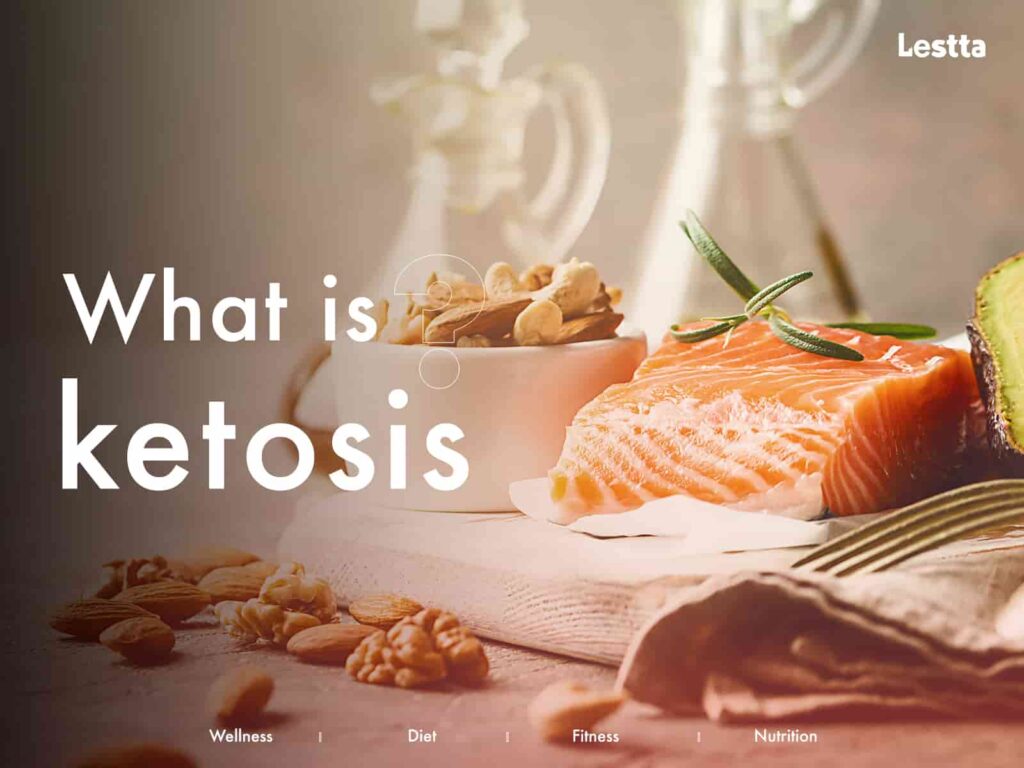
Ketosis has gained attention in recent years as a metabolic state associated with various health benefits. This includes weight loss and improved cognitive function. But what exactly is ketosis? In this article, we will explore the science behind ketosis, how it is achieved, and the potential benefits it offers.
How Does Ketosis Occur?
Ketosis occurs when the body’s carbohydrate stores are depleted, leading to a decrease in blood glucose levels. In response, the liver begins converting stored fats into ketones to provide energy for the body and brain.
Ketones are released into the bloodstream and serve as an alternative fuel source for cells throughout the body. This includes brain, which typically relies heavily on glucose.
Its Benefits
- Weight Loss: Ketosis is associated with increased fat burning, making it an attractive option for weight loss. In this state, the body taps into its fat stores, promoting fat loss while preserving lean muscle mass.
- Improved Cognitive Function: Some studies suggest that ketosis may have cognitive benefits, including increased mental clarity, focus, and improved brain health. Ketones serve as a more efficient energy source for the brain, potentially enhancing cognitive performance.
- Appetite Control: Ketosis is known to help regulate appetite and reduce hunger cravings. When ketones become the primary fuel source, they provide a more stable and prolonged energy supply, minimizing fluctuations in blood sugar levels that can trigger hunger.
- Potential Health Conditions: Ketosis shows promise in certain health conditions, such as epilepsy, where the ketogenic diet has been used as a therapeutic approach to reduce seizure frequency. Research is also exploring its potential benefits for managing type 2 diabetes, metabolic syndrome, and neurological disorders.
- Increased Energy Levels: Many individuals report increased energy and improved physical endurance while in ketosis. This is attributed to the efficient utilization of ketones as a fuel source, which provides a steady supply of energy without the spikes and crashes associated with glucose metabolism.
Maintaining Ketosis
It is crucial to strictly limit carbohydrate intake and consume moderate amounts of protein. The ketogenic diet typically emphasizes high fat intake, moderate protein intake, and minimal carbohydrate consumption.
This can be achieved by focusing on foods like healthy fats (avocados, nuts, and olive oil), low-carbohydrate vegetables, and moderate protein sources (meat, fish, and eggs).
Important Considerations
While ketosis offers potential benefits, it may not be suitable or necessary for everyone. It is important to consider individual health needs, goals, and consult with healthcare professionals before embarking on a ketogenic diet or any significant dietary changes.
Long-term adherence to a ketogenic lifestyle may require careful planning to ensure nutrient adequacy and address potential risks, such as nutrient deficiencies and gastrointestinal issues.
Conclusion
Ketosis is a metabolic state that occurs when the body shifts to burning fat for fuel instead of glucose. It offers potential benefits such as weight loss, improved cognitive function, appetite control, and increased energy levels.
However, it is important to approach ketosis with caution, considering individual health factors and seeking professional guidance. By understanding the science behind ketosis and its potential benefits, you can make informed decisions about whether it aligns with your health goals and embark on a ketogenic journey with confidence.









